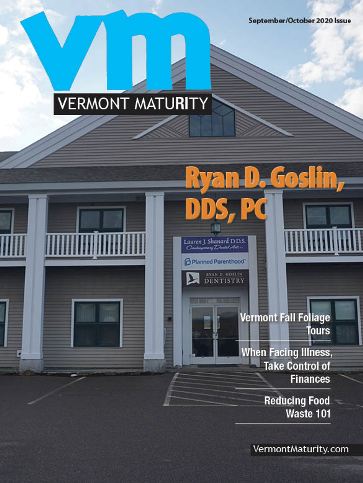
That you need a doctor — or a team of them — on your side as you age is not news. Even if you’ve been one of the lucky ones who’ve hardly ever needed medical care, as you get older and then old, you will. The last decades of life are typically when the most care is needed. The old saying about the elderly spending most of their time seeing “the nice young doctors” has a definite element of truth to it. Which doctor or doctors you need to see, and more so those you should see, is obviously highly individual-dependent, and undoubtedly you already have a set of doctors or providers. We offer here only a few things to think about that may not be obvious regarding your doctors or managing your interactions with them as you get older.
Decide the Approach to Aging you Prefer
There’s still a good deal of debate in both philosophy and the medical field about whether aging should be regarded as a disease that should be treated, or a natural process that should be gracefully accommodated. Doctors themselves differ, as do of course their patients.
You are the General Contractor
Medical specialization has come so far that Dr. Atul Gawande, in his book The Checklist Manifesto (written mainly for other doctors), says that when doctors joke about there being left ear surgeons and right ear surgeons, they have to stop and check that it hasn’t actually become true. If you’re not already, you will almost certainly be seeing a number of specialists in your later years for the various age-related conditions that you’ll develop. A half-dozen or more is not uncommon, and someone has to coordinate all these specialists, de-conflict the treatments that they may independently advise, and make sure that the medications that they prescribe don’t interact in ways that degrade your overall condition. Just the scheduling of tests and treatments that need to be sequenced and coordinated can be complicated. While your PCP is theoretically the person who should do this, in fact he or she simply cannot do it all. Further the system isn’t perfect and certainly the people in any system aren’t perfect. In the end, it’s up to you or someone you enlist.
Do you Need a Geriatrician?
A geriatrician is a medical doctor, usually an internist[i] that has extra training in order to specialize in the medical conditions related to aging[ii]. They usually take a holistic approach to people with age-related problems, and are specifically trained to understand how those conditions interact and to see the early signs of developing problems. They focus on maintaining as much function and quality of life as possible, as opposed to treating every isolated problem. They are especially useful when someone suffers from multiple chronic conditions that diminish their physical or mental abilities.
One of the things that a geriatrician may do for you is steer you towards simpler, less intrusive treatments that may maintain your function even if they don’t, in the end, add a few months to your life. The bias in much of medicine in the United States today is towards specialization and expensive specialized treatments. These are truly God-sends when you need them, and many of us have benefited from one or another of them over the years. But sometimes, especially as you approach the last years of life, they can be very stressful and have more risk or more downsides than reward. A geriatrician should also be an expert on drug interactions, and the way that drugs work in the elderly. Most pharmaceutical trials focus mostly on middle-aged people and as a result, the side effects in the elderly are often not well understood by many doctors.
The difference in the way a geriatrician approaches their patients compared to a non-geriatrician is illustrated by an insightful story related by Dr. Atul Gawande in his best-selling book Being Mortal. In it he describes his experience sitting in on a patient appointment with a geriatrician. The geriatrician spent time asking the patient about the routine of her day; how much she ate; how she managed her medications; he wanted to know who cut her nails; he spent a lot of time inspecting her feet, and generally spent time on a lot of issues that Dr. Gawande thought were not important. He (Gawande) would have zeroed in on what he saw as most important — the most potentially life-threatening issues — the possible cancer she had, or the problem that bothered her most, her back pain. But the geriatrician knew that her most serious life threat was not the possible cancer — it was falling. She was also on a lot of medications and he noticed that she wasn’t eating enough. He knew that elderly people often can’t reach their feet to wash them or trim the nails[iii], which leads to trouble with balance and walking. The geriatrician was taking a holistic, elder-specific, function-preserving approach given the patient’s 85-year old age, rather than treating her the way he might have treated a younger patient, or treating isolated medical conditions like a specialist might.
Remember the Dentist
Older people have dental issues just like everyone else, and they have to deal with dentures, bridges, fewer teeth, and other issues as well. Periodontal disease is associated with heart disease and other not-very-good things; the lesson for older people is that they need to keep up with their dental work.
However it’s tempting for many elders, especially those on fixed incomes, to skip the dental exam and procedures. These can be expensive to be sure, but their neglect can lead to serious problems and ignoring this area of health is certainly penny wise and pound foolish. Sometimes it’s not even the actual cost that causes older people to neglect their teeth, but the perceived expensiveness of the care, especially in light of the distorted notion of what things cost that afflicts many older people. For the truly needy there are often subsidized dental services available.
This article is an excerpt from The Senior Years Master Plan, which is the only resource of its kind, by Ralph Mroz. It can be purchased on Amazon.
[i] An internist is a doctor that specializes in treating adults, as opposed to children (that’s a pediatrician) or the general population (that’s a general practitioner — a GP).
[ii] A geriatrician is a medical doctor that specializes in the treatment of elderly patients. Not to be confused with a gerontologist, who is anyone that studies aging.
[iii] Which is why Medicare pays for routine nail clippings by a podiatrist.
Related Articles & Free Subscription

10 Things to Look For When Selecting a Caregiver






Comment here